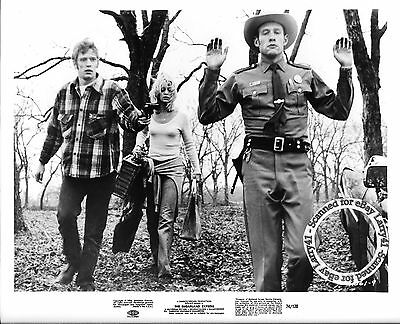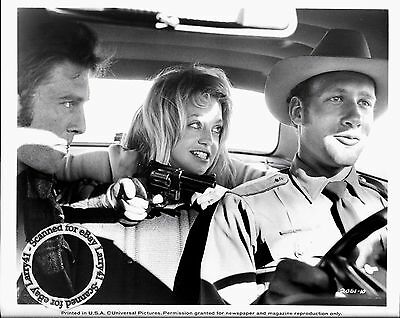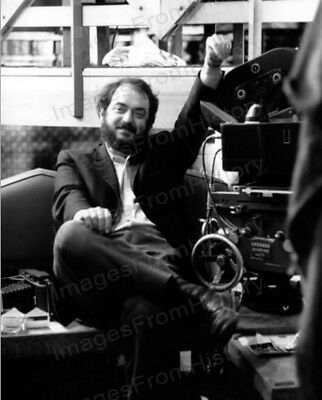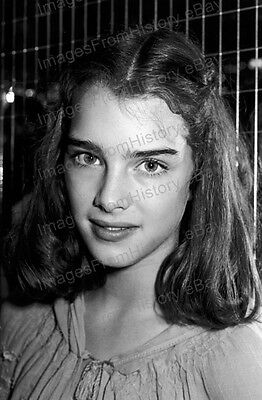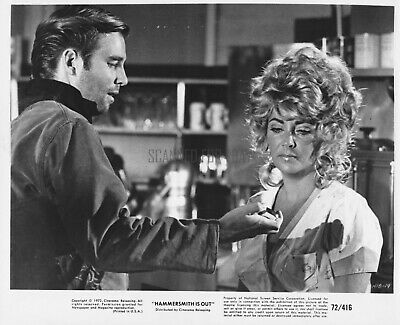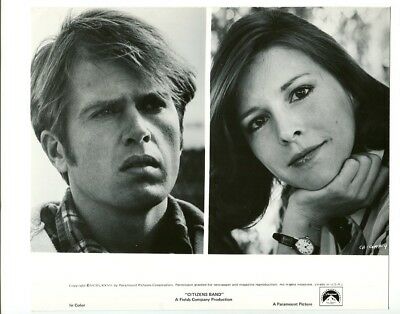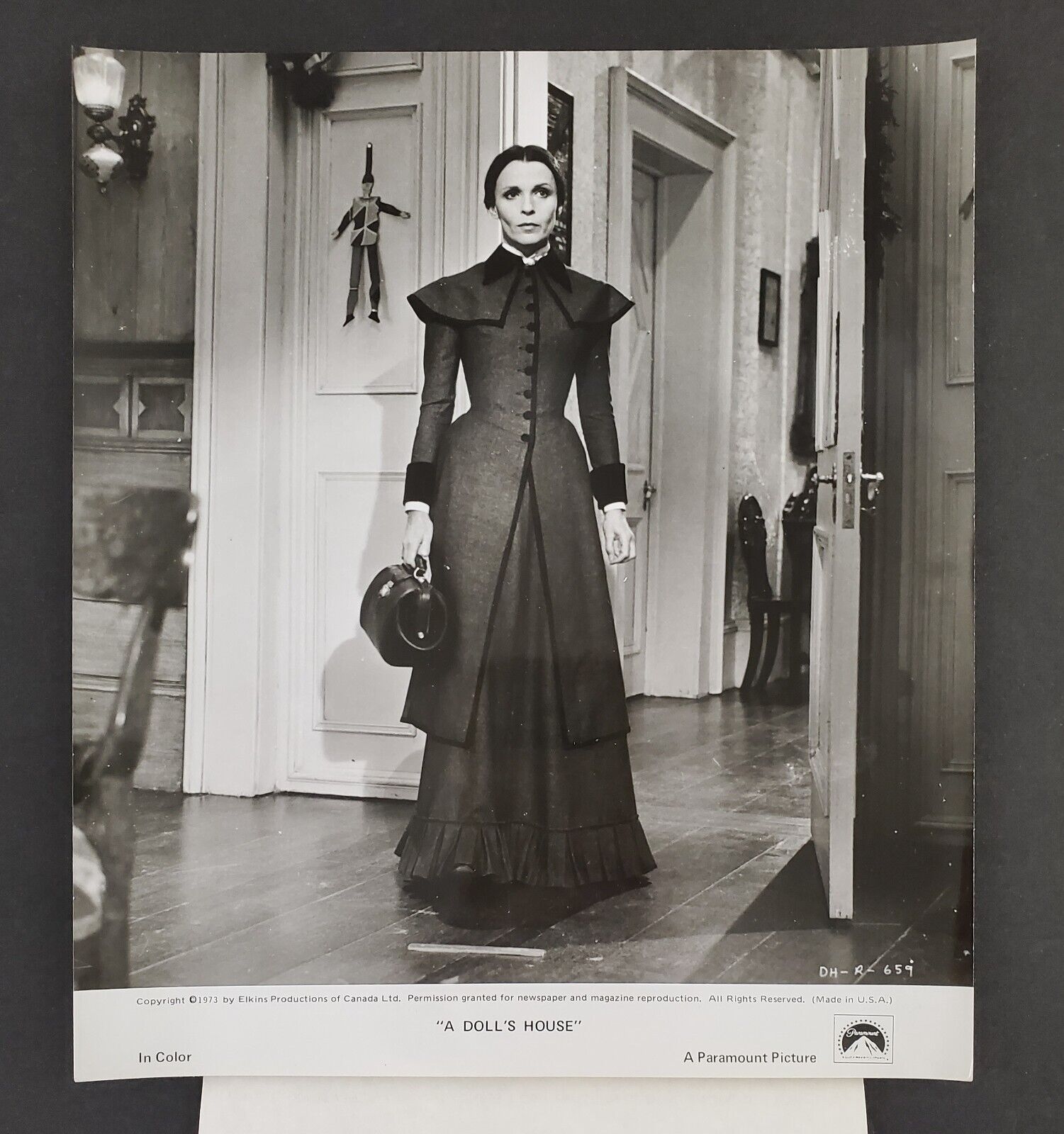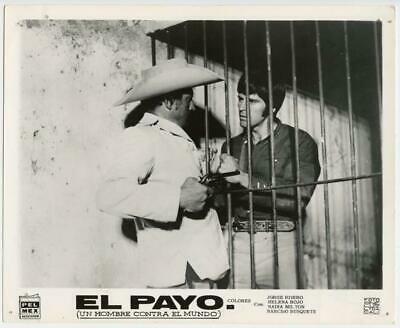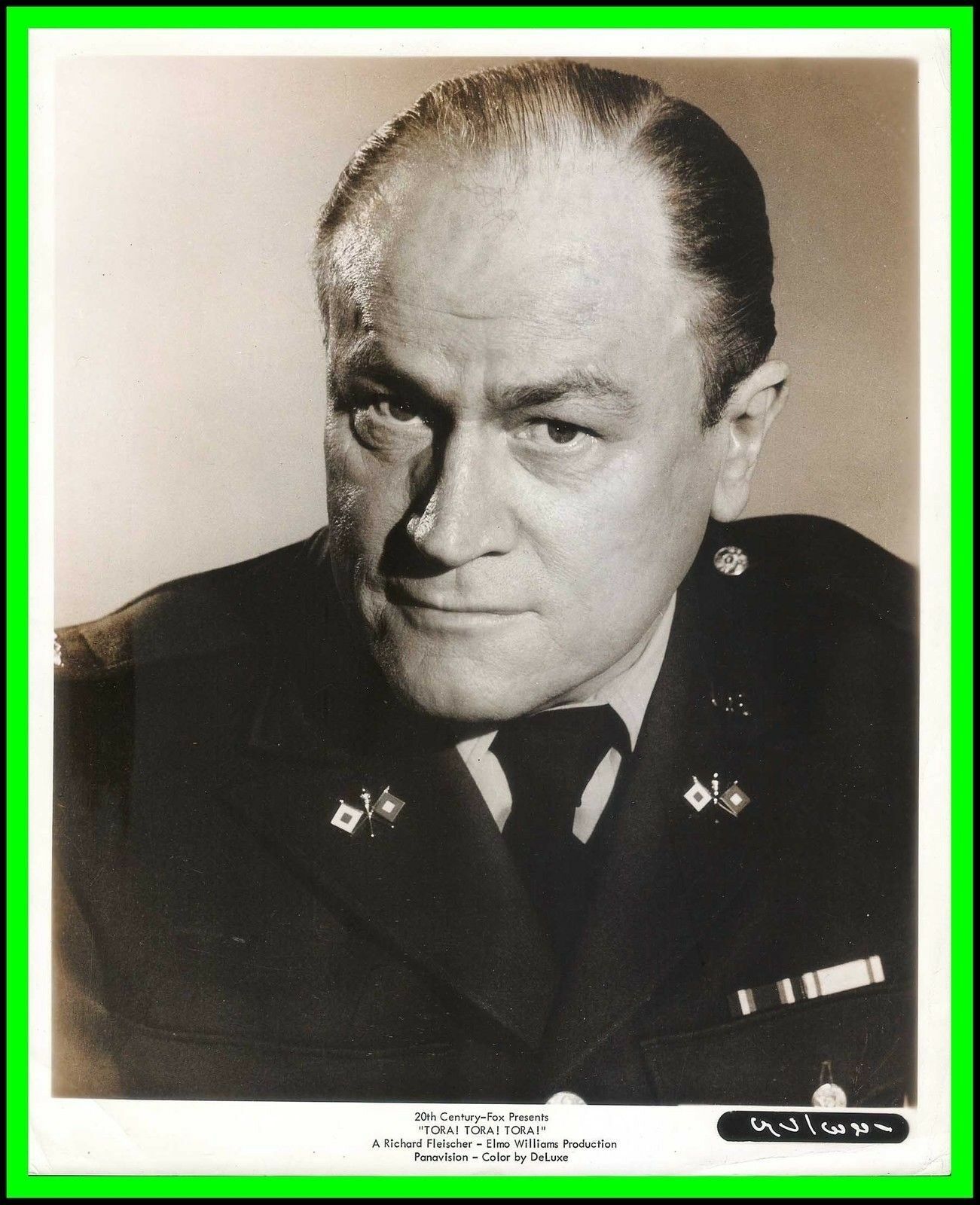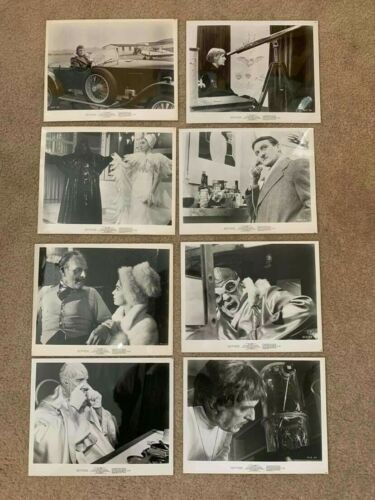-40%
Lot of 5, Goldie Hawn, Steven Spielberg stills THE SUGARLAND EXPRESS (1974) Will
$ 3.99
- Description
- Size Guide
Description
(They ALL look MUCH better than these pictures above. The circle with the words, “scanned for eBay, Larry41” does not appear on the actual photograph. I just placed them on this listing to protect this high quality image from being bootlegged.)Lot of 5, Goldie Hawn, Steven Spielberg stills THE SUGARLAND EXPRESS (1974) William Atherton, Michael Sacks studio vintage originals
– GET SIGNED!
This lot of approximately 8” x 10” photos will sell as a group. The first picture is just one of the group, please open and look at each still in this lot to measure the high value of all of them together. The circle with the words, “scanned for eBay, Larry41” does not appear on the actual photographs. I just placed them on this listing to protect these high quality images from being bootlegged. They would look great framed on display in your home theater or to add to your portfolio or scrapbook! Some dealers by my lots to break up and sell separately at classic film conventions at much higher prices than my low minimum. A worthy investment for gift giving too!
PLEASE BE PATIENT WHILE ALL PICTURES LOAD
After checking out this item please look at my other unique silent motion picture memorabilia and Hollywood film collectibles! SAVE BY SHIPPING SEVERAL WINS TOGETHER!
See a gallery of pictures of my other auctions
HERE!
These photographs are original photo chemical created pictures (vintage, from original Hollywood studio release) and not a copies or reproductions.
DESCRIPTION:
Based on an actual incident, Steven Spielberg's first theatrical feature follows the adventures of a Texas outlaw couple striving to keep their family together by any means necessary. Determined not to lose her child to the authorities, Lou Jean Poplin (Goldie Hawn) gets her obedient convict husband Clovis (William Atherton) to break out of jail and help her kidnap their baby from its foster parents. With hostage Officer Slide (Michael Sacks) in tow, the fugitives head across the plains to Sugarland, Texas, pursued by a flotilla of cop cars. Even though Slide becomes the couple's friend, the Law is bent on capturing its criminal quarry. Even though it was greeted with strong reviews, and Hal Barwood, Matthew Robbins, and Spielberg won the screenplay prize at the Cannes Film Festival, The Sugarland Express flopped. The young audience that had embraced the challenging tonal shifts of Bonnie and Clyde and Easy Rider in the late 1960s was no longer so reliably drawn to narrative uncertainties in 1974. The massive success of Spielberg's next picture, the popcorn thriller Jaws (1975), would confirm his suspicion that downbeat films were no longer the way to popular approval.
CONDITION:
These quality vintage and original release stills are in Near MINT condition (old yes, but hardly any signs of even normal wear, almost pristine, flawless, museum quality uncirculated!). PERFECT TO BE AUTOGRAPHED OR SIGNED AT A PERSONAL APPEARANCE! I doubt there are better condition stills on this title anywhere! Finally, they are not digital or repros. (They came from the studio to the theater during the year of release and then went into storage where the collector I bought them from kept them for over 40 years!) They are worth each but since I have recently acquired two huge collections from life long movie buffs who collected for decades… I need to offer these choice items for sale on a first come, first service basis to the highest bidder.
SHIPPING:
Domestic shipping would be FIRST CLASS and well packed in plastic, with several layers of cardboard support/protection and delivery tracking. International shipping depends on the location, and the package would weigh close to a pound with even more extra ridge packing.
Ebay is changing their system. Items you put in your shopping cart WILL REMAIN FOR SALE on Ebay unless you pay for them. To receive an invoice with corrected (grouped together) shipping, simply click on the REQUEST TOTAL button in your shopping cart.
PAYMENTS:
Please pay PayPal! All of my items are unconditionally guaranteed. E-mail me with any questions you may have. This is Larry41, wishing you great movie memories and good luck…
BACKGROUND:
More influential than even the director's fans are willing to give it credit, Steven Spielberg's first theatrical feature exhibits many of the traits that would later become his signatures: a majestic sense of scope; a fleet-footed sense of technique with even the most mundane action sequences; a childlike, naïve sense of wonder; and, yes, an occasionally cloying sentimentality. The Sugarland Express merges the men-in-cars dynamics of Spielberg's breakthrough TV movie Duel with a ripped-from-the-headlines tale of two holy fools (played impressively but with just a little too much gusto by Goldie Hawn and William Atherton) who will stop at nothing to get their child back. Although the story verges on the melodramatic, what saves the film is Spielberg's sense of space, place, and mood. He's so completely tuned in with his characters' hopes and fears that he's able to convey their every feeling through the visuals, which -- as shot by master cinematographer Vilmos Zsigmond -- are a mix of documentary-style observational shots, sweeping vistas, and absurdist car chases. With the notable exception of the film's de rigueur, early-'70s unhappy ending, many of Sugarland's story arcs, character quirks, and even camera placements can be traced through every subsequent Spielberg feature, from something as epic as Raiders of the Lost Ark to -- most obviously -- his 2002 fraud-on-the-run hit Catch Me if You Can.
A goggle-eyed, ditzy blonde, Goldie Hawn's looks alone make her a natural for the kind of breathless comedy in which she originally made her name. Though she has built a lucrative career with her screen persona of a vivacious, giggly, and befuddled naif, Hawn's onscreen antics conceal her real-life level-headedness: Beneath the wide expanse of her blue eyes lies a shrewd, intelligent, and multi-talented woman. Born November 21st, 1945, Hawn was the daughter of a musician in Washington, D.C., though she grew up in a Jewish neighborhood in suburban Maryland. At the age of three, she took her first dance lesson, and by the age of 17, she was managing a dance studio while studying drama at American University. In 1964, she danced professionally at the Texas Pavilion of the New York World's Fair, and then began appearing in chorus lines in such musicals as Kiss Me Kate, Guys and Dolls, and The Boyfriend. She eventually moved to California, where her first break came when an agent saw her dancing on the Andy Griffith Show and cast her in Good Morning World, a short-lived comedy series. From there she was cast as a dancer in an innovative comedy-variety show hosted by comedians Dan Rowan and Dick Martin. It was on Laugh-In (1968-1970) that Hawn became popular. Originally a dancer on the show, her bikini-clad body painted with funny slogans and designs, she was given a few lines and proved herself a talented performer in a winning, air-headed way. Hawn made her first foray into feature films as a dancer in The One and Only, Genuine, Original Family Band (1968). Her acting debut came a year later playing Walter Matthau's ditzy, bohemian mistress in Cactus Flower (1969); she won an Oscar for her role, making it an inarguably auspicious debut. Later that year she appeared opposite Peter Sellers in There's a Girl in My Soup. These first two films and the subsequent Dollars (1971) utilized Hawn's "blonde" persona, but in 1972, she hinted that she concealed more than a talent for perkiness and comedy when she played a young woman who helps her blind lover deal with his past in Butterflies Are Free. Hawn showed even more depth as a wife who springs her husband from jail in hopes of keeping her child in Sugarland Express, Steven Spielberg's 1973 feature-film directorial debut. Two years later, she starred as Warren Beatty's girlfriend in Shampoo, further exhibiting her capacity as both a comedic and dramatic actress. Subsequently, Hawn continued to work steadily throughout the '80s and '90s, appearing in films of widely varying quality. Some highlights include the successful Private Benjamin (1980), for which Hawn earned her second Best Actress Oscar nomination, Seems Like Old Times (1982), and The First Wives Club (1996), in which she co-starred with Diane Keaton and Bette Midler. Hawn has two children by her second husband, comedian Bill Hudson, and one by her companion since 1986, actor Kurt Russell. She and Russell met on the set of Swing Shift (1984) and have since starred together in such films as Overboard (1987). Following daughter Kate Hudson's success in the wake of Almost Famous (2000), Hawn hit the big screen again in the notorious box-office bomb Town and Country (2001). Though that film did little to re-ignite her appeal as a box office draw, her turn as a free spirited former groupie in the following year's The Banger Sisters drew favorable reviews from critics and audiences and proved a solid indicator that the talented comic actress still had what it takes to bring in the laughs.
The most commercially successful filmmaker in Hollywood history, Steven Spielberg was born December 18, 1946, in Cincinnati, OH. A lifelong cinema buff, he began directing his first short movies while still a child, later studying film at California State University and winning notice for his 1969 short feature Amblin'. He first made his mark in television, directing Joan Crawford in the pilot for Rod Serling's Night Gallery and working on episodes of Columbo and Marcus Welby, M.D. Spielberg's first feature-length effort, 1971's Duel, a taut thriller starring Dennis Weaver, was widely acclaimed as one of the best movies ever made for television. Spielberg permanently graduated to feature films with 1974's The Sugarland Express, but it was his next effort, Jaws, which truly cemented his reputation as a rising star. The most successful film of 1975, this tale of a man-eating Great White shark was widely recognized as the picture which established the summer months as the film industry's most lucrative period of the year, heralding a move toward big-budget blockbusters which culminated two years later with his friend George Lucas' Star Wars. Spielberg's follow-up, 1977's Close Encounters of the Third Kind, was another staggering success, employing state-of-the-art special effects to document its story of contact with alien life. With the 1979 slapstick-war comedy 1941, Spielberg made his first major misstep, as the star-studded picture performed miserably at the box office. However, he swiftly regained his footing with 1981's Raiders of the Lost Ark. Produced by Lucas, the film was one of the biggest hits of the decade, later launching a pair of sequels as well as a short-lived television series. However, it was Spielberg's next effort which truly asserted his position as the era's most popular filmmaker: 1982's E.T. the Extra Terrestrial, the touching tale of a boy who befriends an alien, was hailed upon release as an instant classic, and became one of the most commercially successful movies of all time. After 1984's Raiders of the Lost Ark sequel, Indiana Jones and the Temple of Doom, Spielberg went against type to direct The Color Purple, an adaptation of Alice Walker's much-honored novel exploring the lives and struggles of a group of African-American women during the Depression years. The film went on to gross over 0 million at the box office, later securing 11 Academy Award nominations. A 1987 dramatization of J.G. Ballard's novel Empire of the Sun was his next picture, and was one of his few box-office disappointments. A similar fate met the sentimental Always (1989), a remake of the wartime weeper A Guy Named Joe, but Spielberg returned to form with the same year's Indiana Jones and the Last Crusade. With 1991's 60-million-dollar production of Hook, Spielberg again fell victim to negative reviews and lackluster box-office returns, but in 1993 he returned with a vengeance with Jurassic Park. That same year, he released Schindler's List, an epic docudrama set during the Holocaust. The picture won seven Academy Awards, including Best Picture and Best Director honors. As befitting his role as a major Hollywood player, Spielberg and his company, Amblin Entertainment, also produced a number of highly successful features, including 1982's Poltergeist, 1985's Back to the Future, and 1988's groundbreaking Who Framed Roger Rabbit? He also diversified into television, beginning in 1985 with the anthology series Amazing Stories and later supervising the animated series Tiny Toon Adventures and the underwater adventure Seaquest DSV. However, in the wake of Schindler's List, Spielberg's status as a power broker grew exponentially with the formation of Dreamworks SKG, a production company he headed along with former Disney chief Jeffrey Katzenberg and music mogul David Geffen; consequently, Spielberg spent much of the mid-'90s behind the scenes, serving as executive producer on films such as Twister (1996), Men in Black (1997), and two 1998 films, Deep Impact and The Mask of Zorro. Spielberg returned to the director's chair with the 1997 smash The Lost World, the sequel to Jurassic Park. The same year, he was rewarded with several Oscar and Golden Globe nominations for Amistad, a slavery epic for which he served as both director and producer. Whatever disappointment Spielberg may have felt over not actually winning any of the above awards was most likely mollified the following year with Saving Private Ryan. The World War II epic, which Spielberg directed and produced, won a staggering 11 Academy Award nominations. Eventually winning five, the film lost out to Shakespeare in Love for Best Picture. Ryan did win a Golden Globe for Best Picture (in the Drama category), as well a Best Director nod for Spielberg. After taking the helm for a short documentary chronicling American history for the millennial New Years Eve celebration broadcast, Spielberg took another shot at summer blockbuster success with the sci-fi drama A.I.. Featuring Oscar nominated child actor Haley Joel Osment in the role of a robot boy who longs to be human, and adapted from an original idea from Stanley Kubrick, the high-concept film received a decidedly mixed reception at the box office. The following year, however, would find Spielberg once again coming out on top with two remarkably upbeat chase films. Adapted from a short story by revered science fiction author Phillip K. Dick and starring Tom Cruise as a the head of an elite "pre-crime division" of police officers who use a trio of psychics to predicts criminals' crimes so that they can be arrested before they have a chance to commit them, Minority Report proved an exhilarating sci-fi action epic. A mere six-months later, Spielberg's fast-paced crime adventure Catch Me If You Can adapted the real life exploits of legendary con artist Frank Abagnale, Jr. to the big screen to the delight of audiences hungering for an entertaining and lightweight holiday release. 2004 saw Spielberg team with Hanks yet again, this time for the lighthearted comedy The Terminal. Also starring Catherine Zeta Jones, the film centered on a man without a country who takes up residence in an American airport. The following year found the director diving back into the big-budget sci-fi genre with War of the Worlds. Starring Tom Cruise, the ambitious film was adapted from H.G. Wells classic alien-invasion novel of the same name. After this Hollywood juggernaut, Spielberg cinematically visited his Jewish heritage for the first time since Schindler's List with 2005's critically acclaimed Munich. Beginning with the 1972 Munich Olympics at which 11 Israeli athletes were kidnapped and later murdered by the Palestinian terrorist group Black September, the film follows the small group of Mossad agents recruited to track down and assassinate those responsible. Praised for its sensitive and painful portrayal of ordinary men grappling with their new lives as killers, Munich earned Spielberg a Golden Globe and an Oscar nomination, reminding audiences and critics alike of the filmmaker's ability to go far beyond the realm of simple adventure and fantasy. In 2006, Spielberg produced Clint Eastwood's two films about WWII, Flags of Our Fathers, about the American soldiers at Iwo Jima, and Red Sun, Black Sand, which takes a look at what life was like for men in the Japanese military; both films received broad critical acclaim. In 2008, Spielberg re-ignited the Indiana Jones franchise with the fourth installment in the saga, Indiana Jones and the Kingdom of the Crystal Skull. While critical response to this outing was mixed, it scored at the box office and satisfied many moviegoers. During the years that followed, the number of efforts that bore Spielberg's producing imprimatur grew exponentially. These included The Lovely Bones (2009), the Coen Brothers' remake True Grit (2010), the J.J. Abrams-directed sci-fi fantasy Super 8 (20011) and the eagerly-awaited sequel Men in Black III (2012). Meanwhile, Spielberg reassumed the director's chair for a varied series of pictures, including The Adventures of Tintin (2011). His long gestating Abraham Lincoln biopic Lincoln hit screens in 2012 starring Daniel Day-Lewis as the iconic president and Sally Field as his first lady, and the movie went on to be nominated for a number of Oscars including Best Director and Best Picture.
For those who grew up in the 1980s, many will remember hating actor William Atherton for his hissable characters in such films as Ghostbusters (1984) and Real Genius (1985). Specializing in heady, clueless bureaucrats who never cease to hinder the protagonist and who often get what's coming to them before the credits roll, Atherton is one of those busy character actors who audiences are not likely to forget, even if they can't remember where they know him from. A Connecticut native who got his start on the stage while still in high school, Atherton would subsequently move on to become the youngest member ever accepted into New Haven's Long Wharf Theater repertory. Studies at the Pasadena Playhouse and Carnegie Tech led Atherton to pursue more theater roles, and a few short years later the seasoned stage actor made his leap to the big screen with The New Centurions (1972). A role in Steven Spielberg's The Sugarland Express (1974) found Atherton's feature career getting off to a solid start, and the fledgling actor would continue career momentum with featured roles in The Hindenburg (1975) and Looking for Mr. Goodbar (1977). In the 1980s Atherton would develop a convincingly weasel-like persona with roles as the popcorn-hating professor of Real Genius and a relentlessly obnoxious EPA agent who unleashes a nightmare upon New York in Ghostbusters. Following up with a memorably sleazy reporter in Die Hard (1988) and its sequel, Atherton would remain busy in the 1990s with roles in The Pelican Brief (1993), Bio-Dome (1996), Hoodlum, and Mad City (both 1997). The millennial turnover found Atherton appearing in such fare as The Crow: Salvation (2000) and Race to Space (2001), and as 2003 approached his feature career seemed to be having a bit of a resurgence with such major releases as Who's Your Daddy? and The Last Samurai.
